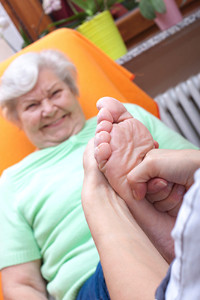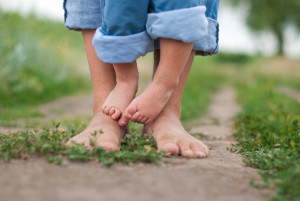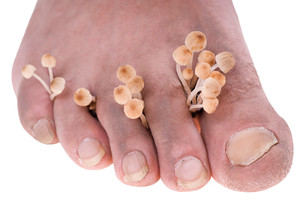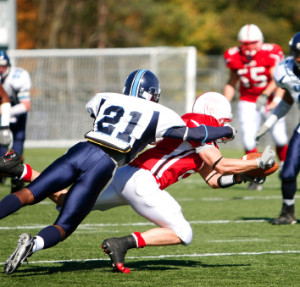
 Taking care of your feet is instrumental in preventing potential injury, especially as you get older. The following are some tips on how to properly care for your feet. It's common among the elderly to suffer from both dry skin and fungal infections, especially toenail fungus. To tackle dry skin, wash your feet in warm water, dry thoroughly, and then apply moisturizer. Toenail fungus can be a burden to eliminate, so it's recommended to see a podiatrist for treatment. Choosing the right footwear can mean the difference between comfort and injury. Avoid uncomfortable and unsupportive footwear such as heels, flats, or sandals. Instead, opt for athletic shoes as these offer more support, comfort, and protection. Always ensure that new shoes fit well and provide enough toe room. Orthotics are recommended for those with flat feet or those who need a better insole. Finally, perform routine foot checks for any abnormalities or damage.
Taking care of your feet is instrumental in preventing potential injury, especially as you get older. The following are some tips on how to properly care for your feet. It's common among the elderly to suffer from both dry skin and fungal infections, especially toenail fungus. To tackle dry skin, wash your feet in warm water, dry thoroughly, and then apply moisturizer. Toenail fungus can be a burden to eliminate, so it's recommended to see a podiatrist for treatment. Choosing the right footwear can mean the difference between comfort and injury. Avoid uncomfortable and unsupportive footwear such as heels, flats, or sandals. Instead, opt for athletic shoes as these offer more support, comfort, and protection. Always ensure that new shoes fit well and provide enough toe room. Orthotics are recommended for those with flat feet or those who need a better insole. Finally, perform routine foot checks for any abnormalities or damage.
Proper foot care is something many older adults forget to consider. If you have any concerns about your feet and ankles, contact Dr. Alan J. Spector from Shore Podiatry. Our doctor can provide the care you need to keep you pain-free and on your feet.
The Elderly and Their Feet
As we age we start to notice many changes in our body, but the elder population may not notice them right away. Medical conditions may prevent the elderly to take notice of their foot health right away. Poor vision is a lead contributor to not taking action for the elderly.
Common Conditions
Susceptible Infections
Diabetes and poor circulation can cause general loss of sensitivity over the years, turning a simple cut into a serious issue.
If you have any questions please feel free to contact our office located in Point Pleasant, NJ . We offer the newest diagnostic and treatment technologies for all your foot and ankle needs.
 When it comes to picking the right shoes, children are much more different than adults. Children’s feet are still growing and developing compared to adult feet. With this in mind, it is important for parents to make sure that their children’s shoes properly fit them. If your child is having a growth spurt, they can quickly outgrow the shoes they wear even if they are relatively new. Children’s shoes should be flexible and have enough space for their toes to move around. They also need to provide good foot support and cushion for comfort. Shoes should be comfortable even after wearing them for hours. Finally, knowing when to wear the right shoe is vital. Sandals or flip-flops are fine for the beach but not for wearing all day. If your child plays sports, they need high performance shoes that can handle the stress. Parents should routinely check their children’s shoes to make sure they properly fit.
When it comes to picking the right shoes, children are much more different than adults. Children’s feet are still growing and developing compared to adult feet. With this in mind, it is important for parents to make sure that their children’s shoes properly fit them. If your child is having a growth spurt, they can quickly outgrow the shoes they wear even if they are relatively new. Children’s shoes should be flexible and have enough space for their toes to move around. They also need to provide good foot support and cushion for comfort. Shoes should be comfortable even after wearing them for hours. Finally, knowing when to wear the right shoe is vital. Sandals or flip-flops are fine for the beach but not for wearing all day. If your child plays sports, they need high performance shoes that can handle the stress. Parents should routinely check their children’s shoes to make sure they properly fit.
Making sure that your children maintain good foot health is very important as they grow. If you have any questions, contact Dr. Alan J. Spector of Shore Podiatry. Our doctor can provide the care you need to keep you pain-free and on your feet.
Keeping Children's Feet Healthy
Having healthy feet during childhood can help prevent medical problems later in life, namely in the back and legs. As children grow, their feet require different types of care. Here are some things to consider...
Although babies do not walk yet, it is still very important to take care of their feet.
Avoid putting tight shoes or socks on his or her feet.
Allow the baby to stretch and kick his or her feet to feel comfortable.
As a toddler, kids are now on the move and begin to develop differently. At this age, toddlers are getting a feel for walking, so don’t be alarmed if your toddler is unsteady or ‘walks funny’.
As your child gets older, it is important to teach them how to take care of their feet.
Show them proper hygiene to prevent infections such as fungus.
Be watchful for any pain or injury.
Have all injuries checked by a doctor as soon as possible.
Comfortable, protective shoes should always be worn, especially at play.
If you have any questions please feel free to contact our office located in Point Pleasant, NJ . We offer the newest diagnostic and treatment technologies for all your foot and ankle needs.
 While most fungal infections of the foot, such as athlete’s foot, are typically non-serious conditions, they can still cause red, itchy and dry feet. This can be very uncomfortable; however, it can be prevented. Keeping your feet clean and dry can prevent fungus from developing. Use talcum powder if your feet become too sweaty. Socks and stockings should be changed daily and should be breathable to prevent sweat. It is advised to change your shoes every couple of days. Shoes that are roomy and allow the feet to breathe are also recommended. Avoid going barefoot in public bathrooms, locker rooms, and changing rooms since these places can harbor fungus. Fungal infections are no fun, but they can be prevented. If you think you have a fungal infection on your foot, see a podiatrist for a diagnosis.
While most fungal infections of the foot, such as athlete’s foot, are typically non-serious conditions, they can still cause red, itchy and dry feet. This can be very uncomfortable; however, it can be prevented. Keeping your feet clean and dry can prevent fungus from developing. Use talcum powder if your feet become too sweaty. Socks and stockings should be changed daily and should be breathable to prevent sweat. It is advised to change your shoes every couple of days. Shoes that are roomy and allow the feet to breathe are also recommended. Avoid going barefoot in public bathrooms, locker rooms, and changing rooms since these places can harbor fungus. Fungal infections are no fun, but they can be prevented. If you think you have a fungal infection on your foot, see a podiatrist for a diagnosis.
Athlete’s foot is an inconvenient condition that can be easily reduced with the proper treatment. If you have any concerns about your feet and ankles, contact Dr. Alan J. Spector from Shore Podiatry. Our doctor will treat your foot and ankle needs.
Athlete’s Foot: The Sole Story
Athlete's foot, also known as tinea pedis, can be an extremely contagious foot infection. It is commonly contracted in public changing areas and bathrooms, dormitory style living quarters, around locker rooms and public swimming pools, or anywhere your feet often come into contact with other people.
Solutions to Combat Athlete’s Foot
Athlete’s foot can cause many irritating symptoms such as dry and flaking skin, itching, and redness. Some more severe symptoms can include bleeding and cracked skin, intense itching and burning, and even pain when walking. In the worst cases, Athlete’s foot can cause blistering as well. Speak to your podiatrist for a better understanding of the different causes of Athlete’s foot, as well as help in determining which treatment options are best for you.
If you have any questions please feel free to contact our office located in Point Pleasant, NJ . We offer the newest diagnostic and treatment technologies for all your foot and ankle needs.
 A broken foot has taken senior Texas Longhorns tight end Andrew Beck out for the season. Initial projections estimated that he’d only miss six to eight weeks. Beck sustained the injury during a non-contact practice event. He will be undergoing surgery for the injury. This isn’t the first time Beck sustained broken a foot, as he suffered the same injury back in February. While the Longhorns have two freshman tight ends, Cade Brewer and Reese Leitao, Leitao was suspended for the first two games of the season. Regardless, it is expected that teammate and recent transfer Kendall Moore will take Beck’s place.
A broken foot has taken senior Texas Longhorns tight end Andrew Beck out for the season. Initial projections estimated that he’d only miss six to eight weeks. Beck sustained the injury during a non-contact practice event. He will be undergoing surgery for the injury. This isn’t the first time Beck sustained broken a foot, as he suffered the same injury back in February. While the Longhorns have two freshman tight ends, Cade Brewer and Reese Leitao, Leitao was suspended for the first two games of the season. Regardless, it is expected that teammate and recent transfer Kendall Moore will take Beck’s place.
Sports related foot and ankle injuries require proper treatment before players can go back to their regular routines. For more information, contact Dr. Alan J. Spector of Shore Podiatry. Our doctor can provide the care you need to keep you pain-free and on your feet.
Sports Related Foot and Ankle Injuries
Foot and ankle injuries are a common occurrence when it comes to athletes of any sport. While many athletes dismiss the initial aches and pains, the truth is that ignoring potential foot and ankle injuries can lead to serious problems. As athletes continue to place pressure and strain the area further, a mild injury can turn into something as serious as a rupture and may lead to a permanent disability. There are many factors that contribute to sports related foot and ankle injuries, which include failure to warm up properly, not providing support or wearing bad footwear. Common injuries and conditions athletes face, including:
Sports related injuries are commonly treated using the RICE method. This includes rest, applying ice to the injured area, compression and elevating the ankle. More serious sprains and injuries may require surgery, which could include arthroscopic and reconstructive surgery. Rehabilitation and therapy may also be required in order to get any recovering athlete to become fully functional again. Any unusual aches and pains an athlete sustains must be evaluated by a licensed, reputable medical professional.
If you have any questions please feel free to contact our office located in Point Pleasant, NJ . We offer the newest diagnostic and treatment technologies for all your foot and ankle needs.